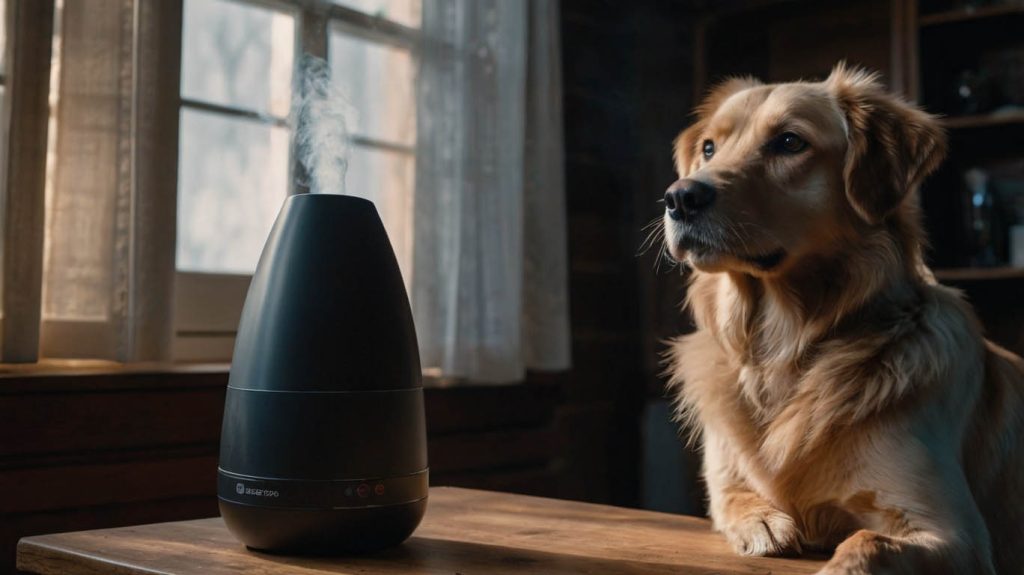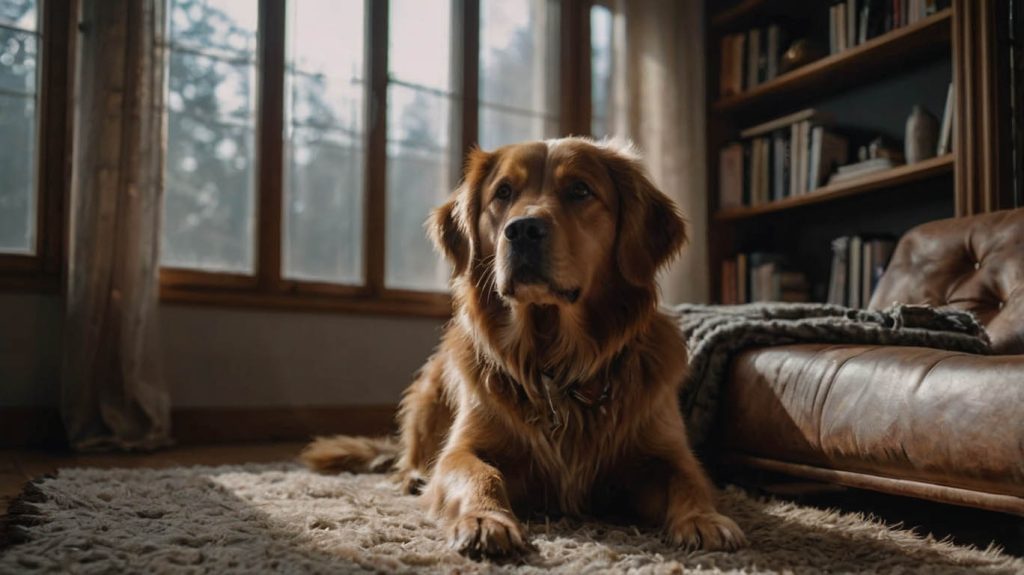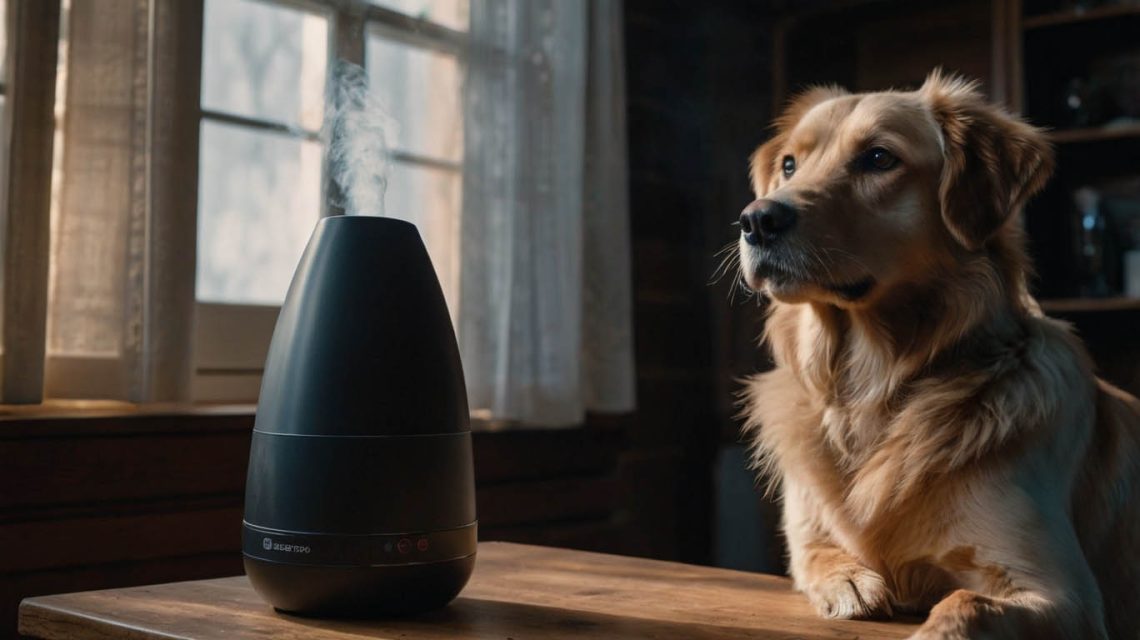Are Diffusers Bad for Dogs? The Ultimate Guide for Pet Parents
Jessica loved coming home after a long day at work to the calming scent of lavender wafting from her new essential oil diffuser. It was her little slice of spa-like serenity. Her golden retriever, Max, didn’t seem to mind it either, often curling up for a nap nearby. One evening, however, Jessica decided to try a new oil: tea tree, which she’d heard was great for purifying the air. Within an hour, she noticed Max was acting strangely. He was drooling excessively and seemed wobbly on his feet. A sudden wave of panic washed over her as she asked herself a terrifying question: are diffusers bad for dogs?
Jessica’s experience is a frighteningly common one. As essential oil diffusers have become a staple in homes for aromatherapy and air freshening, many loving pet owners are unknowingly introducing a potential hazard into their dog’s environment. The internet is a confusing mix of anecdotess—some claiming miracles, others warning of tragedy.
Consequently, this definitive guide is here to provide clear, vet-reviewed answers. We will break down the science behind why a dog’s respiratory system is so sensitive, identify which essential oils are toxic, detail the warning signs of poisoning, and provide a non-negotiable safety checklist. Therefore, you can make an informed decision and confidently answer the question, “are diffusers bad for dogs?”
The Critical Answer: Are Diffusers Bad for Dogs?
Here is the most important takeaway: Yes, diffusers can be bad for dogs, and in some cases, extremely dangerous. The safety of using a diffuser around your dog depends entirely on three factors:
- The specific essential oil being used.
- The concentration of the oil in the air.
- The dog’s individual health and sensitivity.
Failing to understand these three pillars is how accidents happen. A dog’s sense of smell is up to 100,000 times more powerful than a human’s, and their livers process substances differently. This makes them far more vulnerable to the potent compounds in essential oils.

Understanding Why Diffusers Can Be Bad for Dogs
When you use a diffuser, you are releasing microscopic droplets of essential oil into the air. These droplets can affect your dog in two primary ways.
Inhalation Risks: A Dog’s Sensitive Respiratory System
The tiny oil droplets can settle in your dog’s airways and lungs. For some dogs, especially those with pre-existing conditions like asthma, bronchitis, or brachycephalic (flat-faced) breeds like Pugs and Bulldogs, this can cause severe respiratory irritation. Furthermore, the potent aroma that you find pleasant can be overwhelmingly intense for your dog’s powerful nose, causing distress.
Toxicity Risks: The Danger of Ingestion and Skin Contact
The oil droplets don’t just stay in the air; they settle on surfaces—including your dog’s fur. When your dog grooms itself, it ingests these oils. Because a dog’s liver metabolizes toxins differently than a human’s, certain essential oils that are safe for you can be toxic to them, potentially leading to liver damage or failure. This is a primary reason why people ask “are diffusers bad for dogs?”
The Most Toxic Essential Oils: Which Ones to AVOID
This is not an exhaustive list, but these are some of the most common and dangerous essential oils for dogs. You should NEVER diffuse these in a home with a dog.
- Tea Tree Oil (Melaleuca): Extremely toxic. Can cause depression, weakness, stumbling (ataxia), and tremors.
- Pennyroyal: Highly toxic, especially to the liver.
- Pine Oil: Can cause skin irritation, vomiting, and neurological issues.
- Wintergreen: Contains methyl salicylates (the active ingredient in aspirin). Can cause severe gastrointestinal upset and organ failure.
- Birch: Similar to wintergreen, it is highly toxic.
- Citrus Oils (in high concentration): Oils like lemon, orange, and grapefruit contain d-limonene, which can cause vomiting and skin irritation.
- Ylang Ylang: Can cause breathing difficulties and weakness.
- Cinnamon: Can severely irritate the mouth and airways and may lower blood sugar.
- Clove: Can cause liver toxicity.
- Eucalyptus: Can cause drooling, vomiting, and depression.
The question of “are diffusers bad for dogs” becomes a definitive YES when these oils are involved.

What About “Dog-Safe” Essential Oils?
Some essential oils are generally considered safer for use around dogs when used with extreme caution and in very low concentrations. These include:
- Lavender: Often used for calming, but must be high-quality and used sparingly.
- Chamomile: Known for its gentle, soothing properties.
- Frankincense: Believed to have calming and anti-inflammatory properties.
- Ginger: Can be used for nausea, but must be heavily diluted.
Even with these “safer” oils, the potential for harm still exists. The key is always moderation and observation.
The Warning Signs of Essential Oil Toxicity in Dogs
If you use a diffuser and notice any of the following signs, turn it off immediately, move your dog to fresh air, and call your veterinarian or the Pet Poison Helpline.
- Drooling or excessive salivation
- Vomiting or diarrhea
- Lethargy, depression, or weakness
- Stumbling, wobbliness, or difficulty walking (ataxia)
- Coughing, wheezing, or rapid breathing
- Redness or irritation of the skin, mouth, or eyes
- Muscle tremors or seizures
Recognizing these signs is critical when considering “are diffusers bad for dogs.”
The Non-Negotiable Safety Checklist for Using a Diffuser Around Dogs
If you choose to use a diffuser despite the risks, you must follow these safety rules without exception. This is how you can mitigate the potential harm.
- Rule #1: Consult Your Veterinarian First. This is the most important step. Discuss the specific oils you want to use with your vet, especially if your dog has any health problems.
- Rule #2: Heavily Dilute the Oil. Use far fewer drops of essential oil than recommended for human use. More is NOT better.
- Rule #3: Use a Water-Based Diffuser. Only use cool-mist, water-based diffusers. Never use passive diffusers (like reed diffusers or plug-ins) where a dog could knock over and ingest the concentrated oil.
- Rule #4: Diffuse in a Large, Well-Ventilated Area. Never use a diffuser in a small, enclosed room with your dog. Ensure the room has open windows or good air circulation.
- Rule #5: Ensure Your Dog Can Leave the Area. Your dog must always have an easy and obvious escape route to a part of the house where the scent is not present. Do not trap them in the room with the diffuser.
- Rule #6: Limit Diffusion Time. Only run the diffuser for short periods (15-30 minutes) at a time, not all day long.
- Rule #7: Watch Your Dog’s Body Language. Pay close attention to your dog. If they seem uncomfortable, are sneezing, or leave the room, it’s a clear sign that the scent is bothering them. Stop immediately.
Are Diffusers Bad for Dogs? A Case Study Resolved
Let’s return to Jessica and Max. In her panic, Jessica remembered an article she had skimmed about tea tree oil. She immediately turned off the diffuser, opened all the windows, and called the 24/7 Pet Poison Helpline. They instructed her to wash Max’s face with a gentle soap to remove any oil that had settled on his fur and to monitor him closely. Because she acted quickly and the exposure was limited, Max’s symptoms subsided within a few hours. This terrifying experience taught Jessica a valuable lesson: the answer to “are diffusers bad for dogs” can be a frightening yes. She now only diffuses lavender for 15 minutes at a time and always ensures Max can leave the room if he wants to.
The Final Verdict for Loving Pet Owners
So, are diffusers bad for dogs? The potential for harm is very real. While using certain oils with extreme caution might be acceptable for some healthy dogs, the risk often outweighs the benefit. Your dog’s sense of well-being does not depend on your home smelling like a spa, but their health absolutely depends on the air they breathe being safe.
Your pet’s safety should always be your top priority. Before you turn on your diffuser, ask yourself if it’s worth the risk. We strongly urge you to speak with your veterinarian to discuss air freshening alternatives that are proven to be safe for pets. Share this guide to help other dog owners avoid a potential tragedy.


